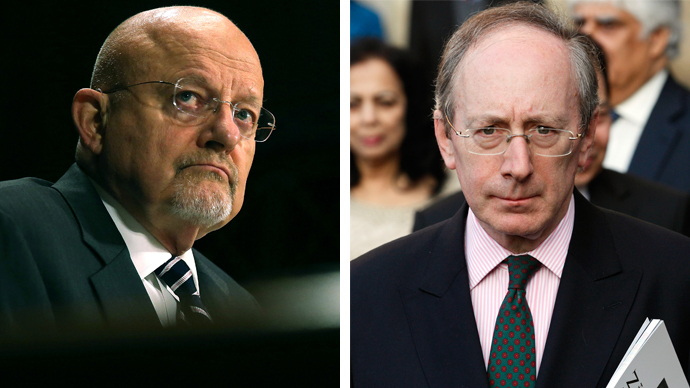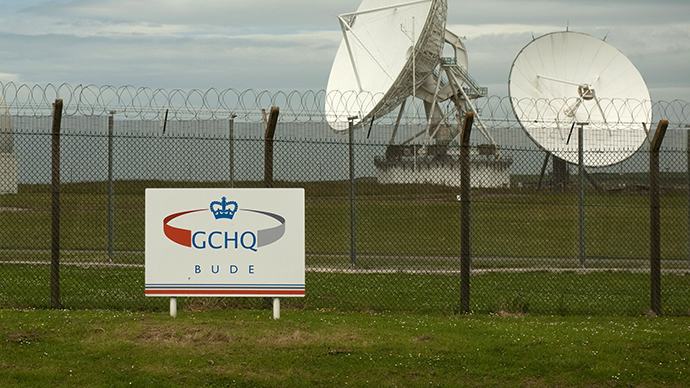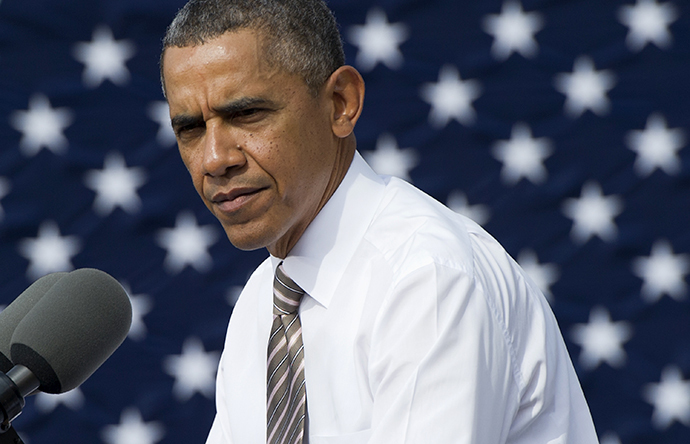Intel union: Spy agency heads won’t roll with US and UK allied

The disparity in response to Edward Snowden's disclosures within the USA and the UK is astonishing.
The disparity in response to Edward Snowden's disclosures within the USA and the UK is astonishing. In the face of righteous public wrath, the US administration is contorting itself to ensure that it does not lose its treasured data-mining capabilities: congressional hearings are held, the media is on the warpath, and senior securocrats are being forced to admit that they have lied about the efficacy of endemic surveillance in preventing terrorism.
Just this week General Alexander, the head of the NSA with a long track record of misleading lying to government, was forced to admit that the endemic surveillance programmes have only helped to foil a couple of terrorist plots. This is a big difference from the previous number of 54 that he was touting around.
Cue calls for the surveillance to be reined in, at least against Americans. In future such surveillance should be restricted to targeted individuals who are being actively investigated. Which is all well and good, but would still leave the rest of the global population living their lives under the baleful stare of the US panopticon. And if the capability continues to exist to watch the rest of the world, how can Americans be sure that the NSA et al won't stealthily go back to watching them once the scandal has died down - or just ask their best buddies in GCHQ to do their dirty work for them?
I'm sure that the UK's GCHQ will be happy to step into the breach. It is already partially funded by the NSA, to the tune of $100 million over the last few years; it has a long history of circumventing US constitutional rights to spy on US citizens (as foreigners), and then simply passing on this information to the grateful NSA, as we know from the old Echelon scandal; and it has far more legal leeway under British oversight laws. In fact, this is positively seen to be a selling point to the Americans from what we have seen in the Snowden disclosures.

GCHQ is absolutely correct in this assessment - the three primary UK intelligence agencies are the least accountable and most legally protected in any western democracy. Not only are they exempt from any real and meaningful oversight, they are also protected against disclosure by the draconian 1989 Official Secrets Act, designed specifically to criminalise whistleblowers, as well as having a raft of legislation to suppress media reporting should such disclosures emerge.
This might, indeed, be the reason that the UK media is not covering the Snowden disclosures more extensively - a self-censoring "D" Notice has been issued against the media, and The Guardian had its UK servers smashed up by the secret police. 1930s Germany, anyone?
Defenders of the status quo have already been out in force. Foreign Secretary William Hague, who is notionally responsible for GCHQ, said cosily that everything was legal and proportionate, and Sir Malcolm Rifkind, the current chair of the Intelligence and Security Committee in parliament last week staunchly declared that the ISC had investigated GCHQ and found that its data mining was all legal as it had ministerial approval.
Well that's all OK then. Go back to sleep, citizens of the UK.
What Hague and Rifkind neglected to say was that the ministerial warrantry system was designed to target individual suspects, not whole populations. Plus, as the Foreign secretary in charge of MI6 at the time of the illegal assassination plot against Gaddafi in 1996, Rifkind of all people should know that the spies are "economical with the truth".
In addition, as I've written before, many former top spies and police have admitted that they misled lied to the ISC. Sure, Rifkind has managed to acquire some new powers of oversight for the ISC, but they are still too little and 20 years too late.
This mirrors what has been going on in the US over the last few years, with senior intelligence official after senior official being caught out lying to congressional committees. While in the UK statements to the ISC have to date not been made under oath, statements made to the US Congress are - so why on earth are apparent perjurers like Clapper and Alexander even still in a job, let alone not being prosecuted?
It appears that the US is learning well from its former colonial master about all things official secrecy, up to and including illegal operations that can be hushed up with the nebulous and legally undefined concept of "national security", the use of fake intelligence to take us to war, and the persecution of whistleblowers.
Except the US has inevitably super-sized the war on whistleblowers. While in the UK we started out with the 1911 Official Secrets Act, under which traitors could be imprisoned for 14 years, in 1989 the law was amended to include whistleblowers - for which the penalty is 2 years on each charge.
The US, however, only has its hoary old Espionage Act dating back to 1917 and designed to prosecute traitors. With no updates and amendments, this is the act that is now rolled out to threaten modern whistleblowers working in the digital age. And the provisions can go as far as the death penalty.
President Obama and the US intelligence establishment are using this law to wage a war on whistleblowers. During his presidency he has tried to prosecute seven whistleblowers under this Espionage Act - more than all the previous presidents combined - and yet when real spies are caught, as in the case of the Russian Spy Ring in 2010, Obama was happy to cut a deal and send them home.

An even more stark example of double standards has emerged this August, when a leak apparently jeopardised an ongoing operation investigating a planned Al Qaeda attack against a US embassy in the Middle East. This leak has apparently caused immediate and quantifiable damage to the capabilities of the NSA in monitoring terrorism, and yet nobody has been held to account.
But, hey, why bother with a difficult investigation into leaking when you can go after the low-hanging fruit - otherwise known as principled whistleblowers who "out" themselves for the public good?
This to me indicates what the US intelligence infrastructure deems to be the real current issue - "the insider threat" who might reveal crucial information about state crimes to the world's population.
And yet the US representatives still trot out the tired old lines about terrorism. Senator Lindsey Graham stated this week that the current level of endemic surveillance would have prevented 9/11. Well, no, as previous intelligence personnel have pointed out. Coleen Rowley - Time Person of the Year 2002 - is famous for highlighting that the US intelligence agencies had prior warning, they just didn't join the dots. How much worse now would this process be with such a tsunami of data-mined intelligence?
In summary, it's good to see at least a semblance of democratic oversight being played out in the USA, post-Snowden. It is a shame that such a democratic debate is not being held in the UK, which is now the key enabler of the USA's chronic addiction to electronic surveillance.
However, I fear it is inevitably too little too late. As we have seen through history, the only protection against a slide towards totalitarianism is a free media that allows a free transfer of ideas between people without the need to self-censor. The global US military-security complex is embedded into the DNA of the internet. We cannot rely on the USA to voluntarily hand back the powers it has grabbed, we can only work around them as Brazil has suggested it will do, and as the EU is contemplating.
Other than that, responsibility for our privacy rests in our own hands.
The statements, views and opinions expressed in this column are solely those of the author and do not necessarily represent those of RT.
The statements, views and opinions expressed in this column are solely those of the author and do not necessarily represent those of RT.













